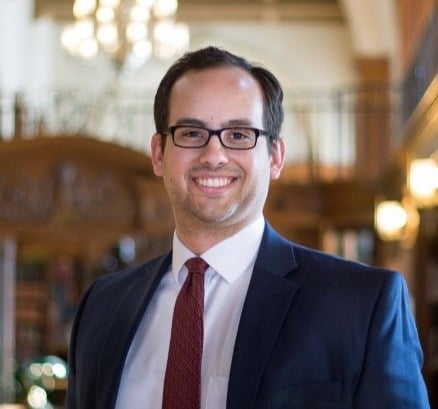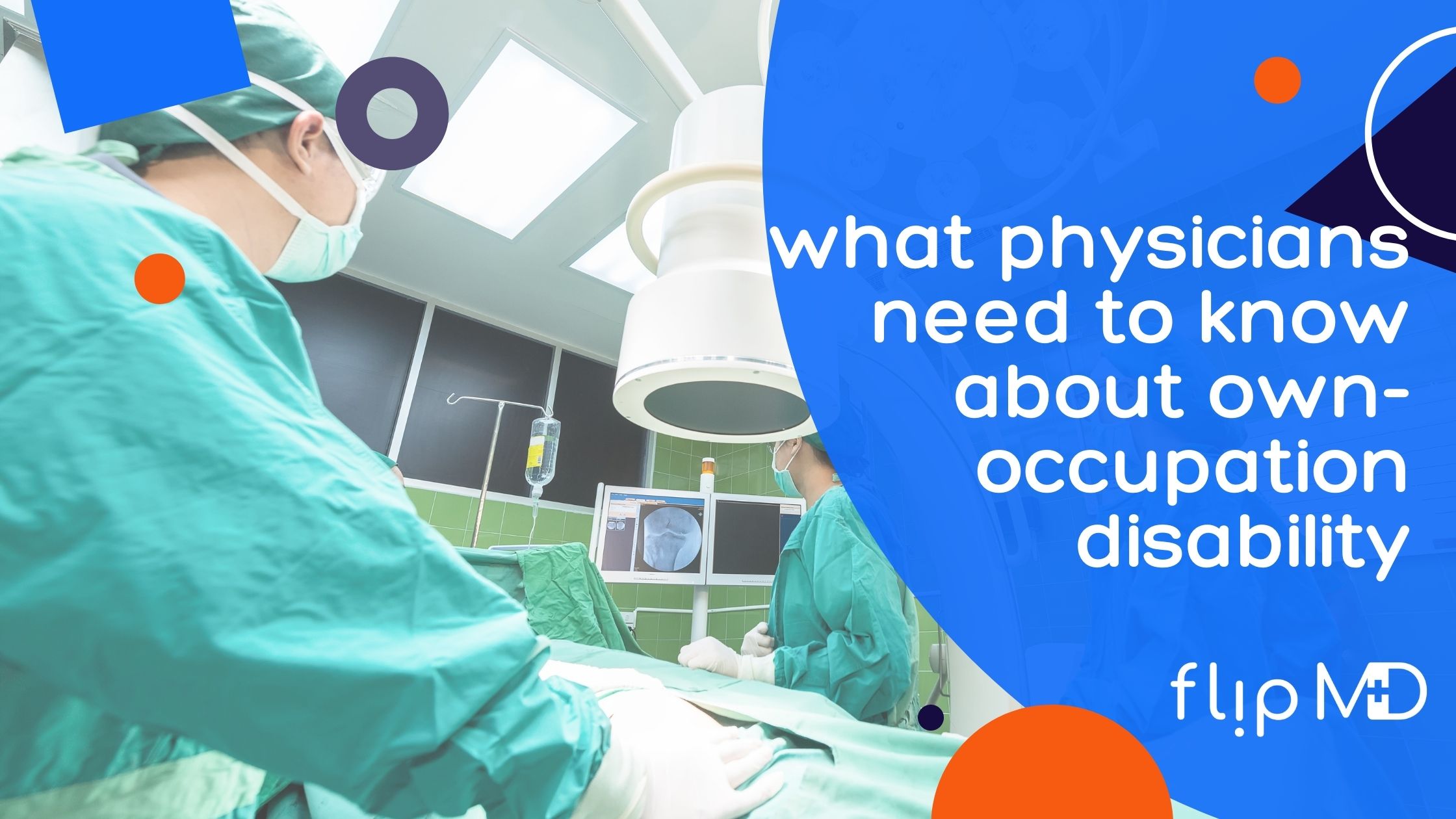Insurance stuff can get confusing.
There's car insurance, homeowner’s insurance, health insurance…the list goes on. It’s enough to make anyone’s head spin. That’s why it can be tempting to gloss over the fine print when choosing a disability insurance policy.
But getting the right type of disability insurance as a physician is super important, because getting the wrong kind could leave you with zero benefits even if you became seriously disabled. Read on to find out why.
What is own occupation disability?
Own-occupation insurance policies pay a benefit when someone becomes disabled and can’t work anymore.
Sounds simple, right? Weeell, unfortunately, not every policy defines “work” the same way. Some policies kick in whenever the policy holder becomes disabled in a way that prevents her from doing her job. Other policies kick in only if the policy holder can’t do any job.
It's a subtle difference, but it's one that could cost you millions over your lifetime.
For example, let's say you're a surgeon who loses both of your hands in a shark attack. If you have the first type of policy, then as long as you were employed as a surgeon at the time of the ill-fated beach trip, you should get your full benefit amount. But if you have the second type of policy, you’ll be getting a big fat check for nothing, because even though you can't operate anymore, you could still work another type of job.
Confusingly, both of these types of insurance are often referred to as “own-occupation insurance.” So you see why it’s really important to know which type of own-occupation insurance policy you’re actually getting when you choose a policy.
What is the difference between own occupation and any occupation?
"True own-occupation" policies have the strongest coverage. They cover physicians who become disabled and are unable to perform the duties of their particular specialty. Moreover, these policies should still pay out even if you were to become gainfully employed in another capacity.
So if the surgeon who can no longer operate wants to make some big bucks as a physician consultant, she can find a gig on flipMD and still get her full disability benefit if she has a true own-occupation policy.
"Any occupation" policies are a lot weaker. They only cover physicians who become disabled and are unable to work any kind of job, which would only be the case with the most serious of disabilities. And by the way, you should know that any occupation policies are the most common type of own occupation disability insurance policies. So if your employer offers a disability insurance policy, it's probably of the "any occupation" variety.
So that same surgeon who had the run in with the shark would be out of luck if she had an any occupation policy. Although she could no longer operate, she wouldn't be due any benefits under an any occupation policy since she could still work another kind of job.
Other types of own-occupation insurance
True and any occupation insurance are the main types of disability insurance out there, but there are a few other kinds that you might bump into that you should know about.
- Transitional own-occupation. Like true own-occupation insurance, these policies will still pay benefits if you lose your ability to do your specialty but can still work another job. The catch is that your new income can't exceed the income you were making as a doctor. If it does, then your benefits will be reduced until your new income combined with your benefits is equal to the pay you were making in your speciality. Womp womp.
- Modified own-occupation. Modified own-occupation policies are even more restrictive. They'll still pay a benefit if you lose your ability to do your speciality but can still work another job, but only if you don't actually take the other job. As soon as you return to full-time work, poof! The benefit is gone.
For me, true own-occupation disability insurance feels like the only one really worth buying as a physician, especially once you're making an attending salary. But the math can look different depending on your financial needs, career stage, and a bunch of other factors. If you're wondering what kind of policy is right for you, a financial advisor with experience working with physicians (find one here) can give you some advice.



Leave a Comment
Related Articles